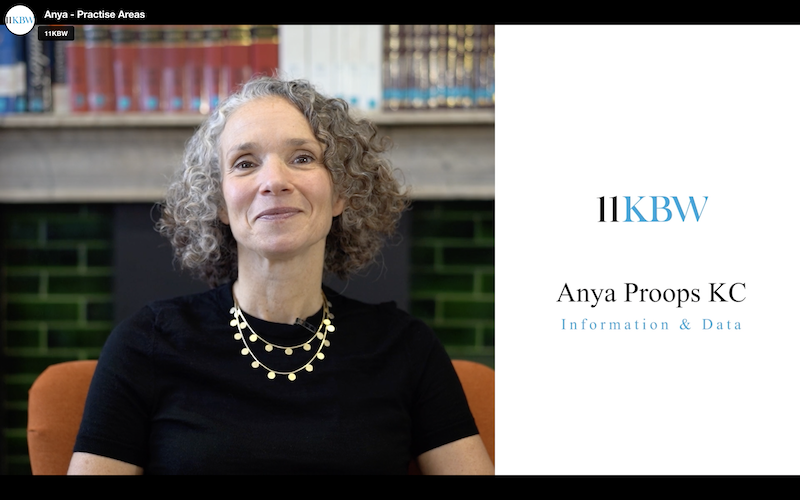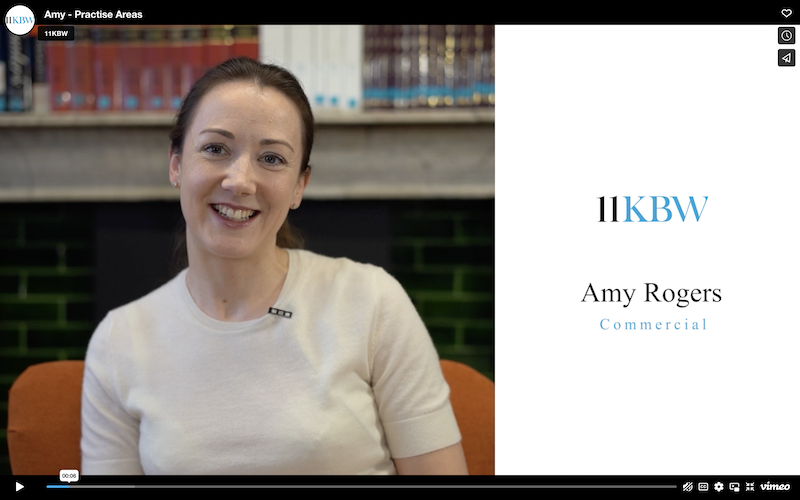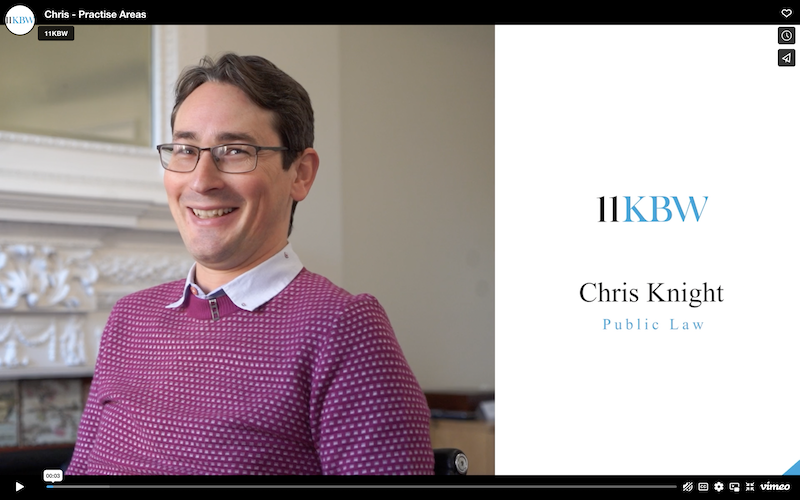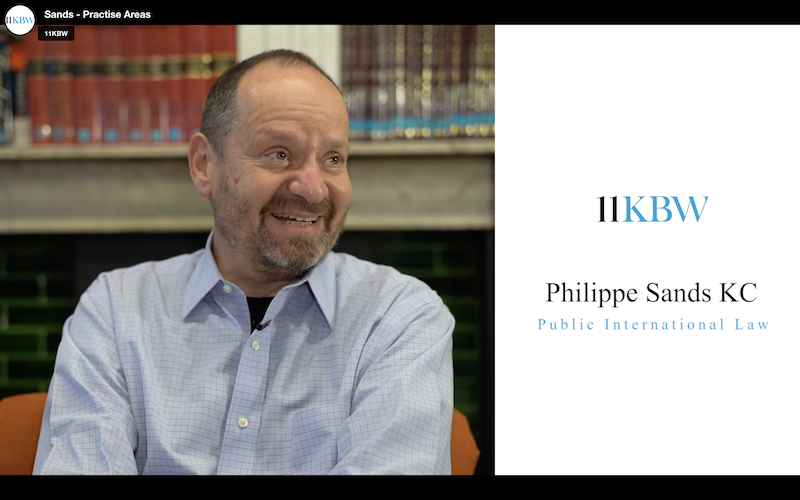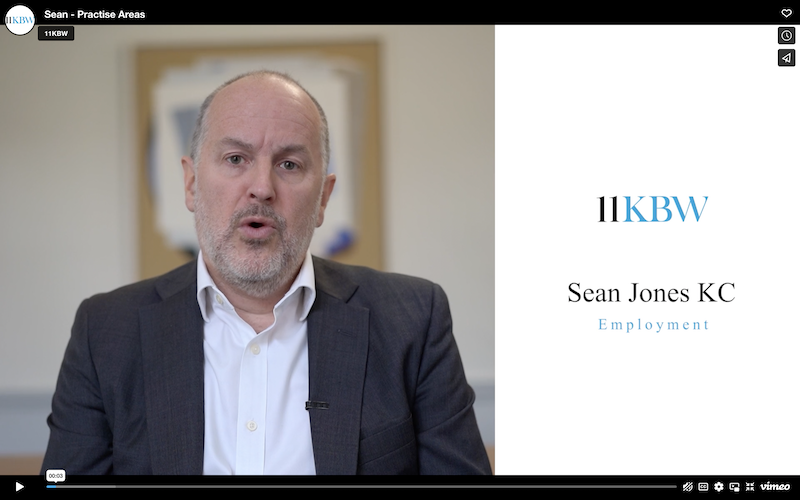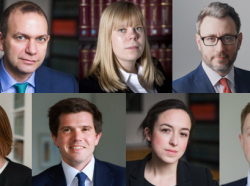What standards are you looking for?
We normally require candidates to have a first class, or high upper-second class degree.
How many pupillage applications do you receive?
In 2025, we received 267 applications.
How many candidates are interviewed?
Generally between 10 and 12. As set out above under ‘How to apply’, Chambers has a multi-stage process, in which interviews form the final round.
What should I expect at interview?
In the past, candidates have been provided in advance with a recent case and asked questions about it; an hour before the interview, they have been given a short set of papers and then asked to present an application to the interview panel.
I haven’t been to Oxford or Cambridge, is it worth me applying?
Definitely. We are looking for the most innovative, precise and strategic practitioners, irrespective of their place of study.
I have a disability, how will 11KBW arrange for any reasonable adjustments I need?
Reasonable adjustments will be made where appropriate for any disabled candidate for pupillage, and for any disabled pupil. Any candidate requiring reasonable adjustments should email Adminroom@11kbw.com, providing details of their needs and the adjustment they seek.
How will I be assessed during pupillage?
Feedback on your work is ongoing throughout pupillage, both from your supervisors and any other members of Chambers you work with. All significant pieces of work done for your supervisor, and all pieces of work done for members other than your supervisor, are marked against objective criteria such as legal research, analysis, and judgement. Work done for members other than your supervisor is marked by two members of Chambers, both of whom give feedback. Members of Chambers will tell you whether your work met the tenancy standard. They will also explain its strengths and weaknesses, and how you could improve your work.
We believe that this ongoing, transparent assessment and feedback from a range of members of Chambers is the fairest way for us to assess your work and enables you and your supervisors to track your progress throughout the year. We also believe that detailed feedback is necessary to help pupils reach their full potential.
We assess oral advocacy skills through the regular feedback sessions you will have to discuss your written work. There are also dedicated advocacy exercises during the year.
We offer pupillage only to individuals whom we believe have the potential to meet the tenancy standard. But we do not expect our pupils to produce work at that standard in the early periods of pupillage. Our aim in giving consistent feedback throughout the year is to enable you to develop all of the skills we assess by the time decisions about tenancy are made.
How are tenancy decisions made?
The tenancy decision is taken in July. We are committed to offering tenancy to every pupil whose work is consistently at the tenancy standard by the time of the decision.
This means that pupils are not in competition with one another for offers of tenancy. Everyone is assessed on their own merit.
Where a pupil is taken on after pupillage and becomes a tenant, past experience demonstrates that their first-year earnings will compare favourably to those of their peers at other leading Chambers, and leading City and US law firms. However, barristers are self-employed, and our juniors are encouraged to choose the work that interests them and the workload that they prefer. This means that junior tenants’ earnings vary depending on the practice that they have chosen.
What kind of work will I do as a new tenant?
All of our members of Chambers, including our most junior tenants, have complete autonomy to develop their practice as they wish.
Experience shows that most of our new tenants choose to gain some experience of all of our core practice areas (employment, public, commercial and media/data privacy law), both as sole counsel and being led by more senior members. Our new tenants are always welcomed with opportunities to start working with leaders on Chambers’ cutting edge work.
The Employment Tribunal and the Information Tribunal offer particularly good opportunities for junior advocacy experience, but there are opportunities to appear in the High Court and appellate courts from the outset as juniors in larger teams.
Some of our juniors then decide to focus on areas of particular interest within a year or two after taking tenancy, whereas others maintain a broad practice throughout their tenancy. Whatever choice they make, their clerks will support them. This is exceptional at the Bar.
Are pupils in competition with each other?
No. All pupils are assessed throughout pupillage against a transparent, objective standard and it is our policy to offer tenancy to every pupil who reaches that standard.
Do I need a law degree?
No. Many members of Chambers have a degree in a subject other than law. We welcome the diversity that this brings.
How many pupillages do you offer?
We offer up to five pupillages each year.
What pupillage awards do you offer?
Pupillage awards for October 2027 will be £90,000 for a full 12-month pupillage.
Is any part of the pupillage award payable earlier?
For October 2027, up to £30,000 of the pupillage award may be paid to prospective pupils as an advance in their BPTC year.
Can I receive financial help for my application?
Chambers’ pupillage application process is intended to reduce the financial burden on applications who are not based in London, and who may have to pay for their travel and/or accommodation, by providing for personal attendance only at the later stages of the process.
However, we recognise that attendance at Chambers for the mini-pupillage day and for interview may be expensive for applicants who are not based in London, and who may have to pay for their travel and/or accommodation. We will reimburse the reasonable travel or accommodation expenses of applicants who reach these stages and live outside the M25. For further information please contact Claire Halas (Claire.Halas@11kbw.com).
I am not resident in the UK: can I still apply?
Yes. Chambers’ pupillage application process facilitates remote applications by those living or studying abroad, by providing for personal attendance only at the later stages of the process.
Where candidates are living or studying abroad, Chambers is willing to conduct those stages which would normally involve personal attendance (ie. the oral assessment element of the mini-pupillage day, and interview) by remote means.
If applicants do not have the right to work in the UK, the Bar Council manages the process of sponsorship for applicants who meet the qualifying criteria to train and practise at the Bar [ref].
Does 11KBW offer mini-pupillages?
An assessed mini-pupillage day forms part of our multi-stage process for pupillage applications.
Please find more information regarding our pupillage process here.

